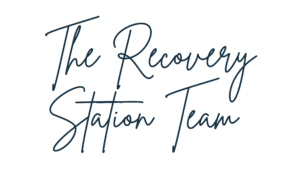At first glance, the hourly rates for allied health therapy under different funding models can appear vastly different.
There are valid reasons behind these variations, but when you break down what is included, they’re often more comparable than they seem.
Why do different funding models have different hourly rates and session times?
Each funding model NDIS, Aged Care, DVA, Medicare, and Insurance (e.g. iCare, Workers Compensation, CTP) comes with unique requirements around service delivery, documentation, compliance, session times and client complexity. Many therapists undergo additional training and ongoing professional development to meet these specific client needs.
As a result, the hourly rate reflects:
- The level of complexity involved
- Time spent outside of the session
- The qualifications and experience required
- Where and how the service is delivered
What are the main Allied Health funding models?
Different funding models shape how allied health services are delivered and what’s required of clinicians. Here’s a snapshot of how the key funding streams compare.
- Insurance-funded services (such as iCare, Workers Compensation and CTP) are frequently charged at the same or higher rate than the NDIS, recognising the complexity, risk, and specialised skills involved.
- Medicare is designed for short, clinic-based care with capped rebates (often supporting multiple clients per hour).
- Aged Care services can be less complex, and their hourly rate often includes travel within that time block.
- The NDIS supports people with disabilities in building capacity, independence, and participation, which requires more time, clinical justification, higher expertise, and greater compliance.
What’s Behind NDIS Therapy Rates?
The provision of NDIS Allied Health therapy is more than just time in the session. It involves tailored support, clinical reporting, and compliance. Here’s a breakdown on why the rates reflect more than face-to-face care:
Complexity of care
NDIS participants often have multiple diagnoses with high support needs that require clinicians with significant experience and training. Therapy may require:
- Comprehensive functional assessments
- Reports requiring high level of clinical justification and may be used for medico-legal purposes
- Long-term capacity-building programs
Administrative and compliance requirements
NDIS participants require a greater degree of administrative support outside of therapy sessions from both therapists and the administration team. Therapists must also meet rigorous standards in:
- Reporting
- Progress tracking
- Individual goal determination and alignment
- Justification of ongoing funding
- Significant compliance auditing
This documentation helps ensure participants get the right support, both now and in the future. However, it adds considerable time and cost to delivering the service.
Community service delivery
Most complex adult and adolescent NDIS therapy is delivered in a person’s home or community, not in a clinic. This is vital for our clients, as many are unable to travel and therapy would largely remain inaccessible to them. Community service delivery costs include:
- Travel time
- Vehicle/Fuel costs
- Transport logistics
These costs are not covered or required under Medicare-funded services.
A highly skilled workforce
Delivering effective NDIS therapy requires clinicians with advanced skills in:
- Disability
- Neurological conditions
- Complex behaviours
- Equipment prescription and training
By contrast, aged care funding structures are often more generalist, offer less scope for individualised therapy, and do not require the same level of documentation or outcome reporting. The funding difference doesn’t reflect a difference in care quality, but in the scope, complexity, and time required for NDIS work.
Proposed changes to NDIS Funding
To maintain access and quality, the NDIS must continue to fund services at a level that accurately reflects the actual costs of delivering them.
The NDIS rate for allied health services is not inflated. It aligns with the actual cost of delivering complex, community-based therapy, as acknowledged by other funding systems, such as insurance.
At Recovery Station, as we have done for 20 years, we empower people to live a quality life through flexible and personalised allied health therapy, regardless of how their services are funded.
We remain committed to delivering exceptional care tailored to each individual’s needs, always advocating for fair and sustainable funding that supports meaningful outcomes.
For more information or to answer any questions you may have, please call our friendly team on 1300 588 851.
Until next time,


